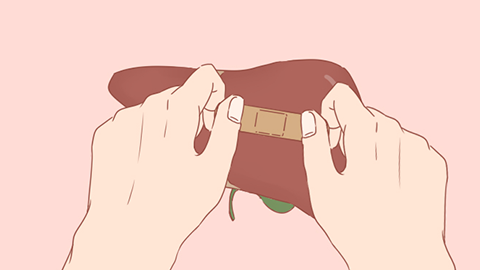What are the best treatment options for liver abscess?
Generally speaking, there is no definitive best treatment for liver abscess. Liver abscess may be associated with factors such as weakened immune function, poor personal hygiene, antibiotic abuse, cholangitis, and amoebic liver abscess. It is recommended to seek timely medical attention and adopt general treatments and medication under the guidance of a physician. Detailed explanations are as follows:

1. Weakened Immune Function
When the body's immune function is compromised, resistance to external pathogens decreases, making it easier for pathogens such as bacteria and fungi to invade the liver and cause liver abscess. It is recommended to maintain good living habits and regularly check immune function.
2. Poor Personal Hygiene Habits
Poor hygiene habits can easily lead to bacterial and viral infections, especially those entering the bloodstream through the oral cavity, intestines, respiratory tract, and subsequently colonizing in the liver. It is recommended to develop good personal hygiene habits to prevent bacterial and viral infections.
3. Antibiotic Abuse
Abuse of antibiotics can easily cause dysbiosis, increase the burden on the liver, and thus increase the risk of liver abscess. It is recommended to follow medical advice when using antibiotics and avoid self-purchasing and consumption.
4. Cholangitis
Cholangitis is usually caused by bacterial infection. Inflammation leads to bile stasis, providing conditions for bacterial proliferation, which can then cause liver abscess. It is typically accompanied by discomfort, distension, and pain in the upper middle abdomen. Follow medical advice to use medications such as levofloxacin injection, anti-inflammatory bile-promoting tablets, and ursodeoxycholic acid capsules for treatment.
5. Amoebic Liver Abscess
An amoebic liver abscess is generally caused by Entamoeba histolytica. After invading the intestinal wall, the parasite enters the liver via the portal vein or lymphatic system, where it multiplies and triggers an inflammatory response, forming an abscess. It is typically accompanied by long-term fever, anemia, and weight loss. Follow medical advice to use medications such as metronidazole tablets, tinidazole capsules, and paromomycin sulfate tablets for treatment.
It is recommended to maintain good living habits, quit smoking and drinking timely, consume light and nutritious food, and reduce intake of irritating foods to aid in body recovery.




